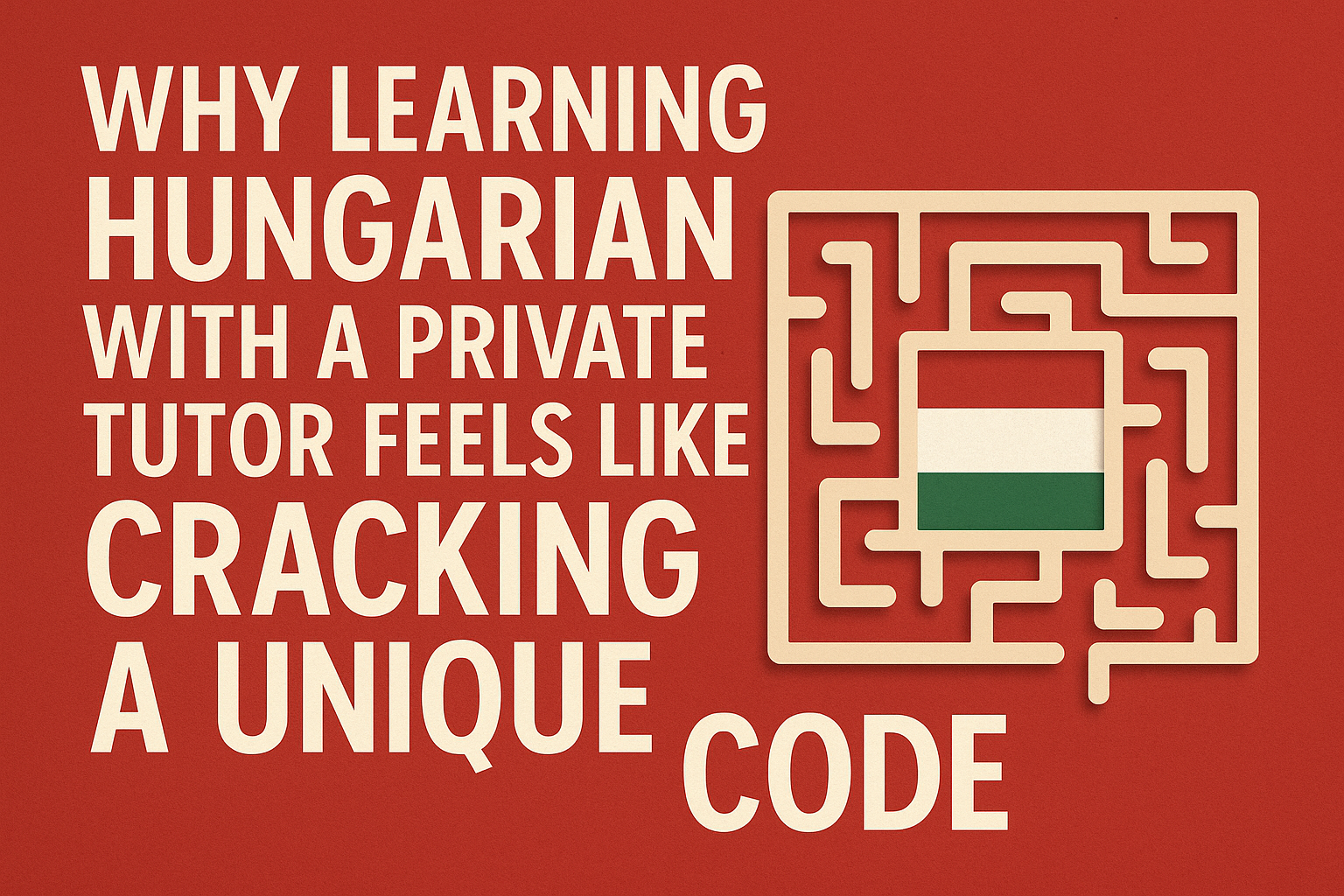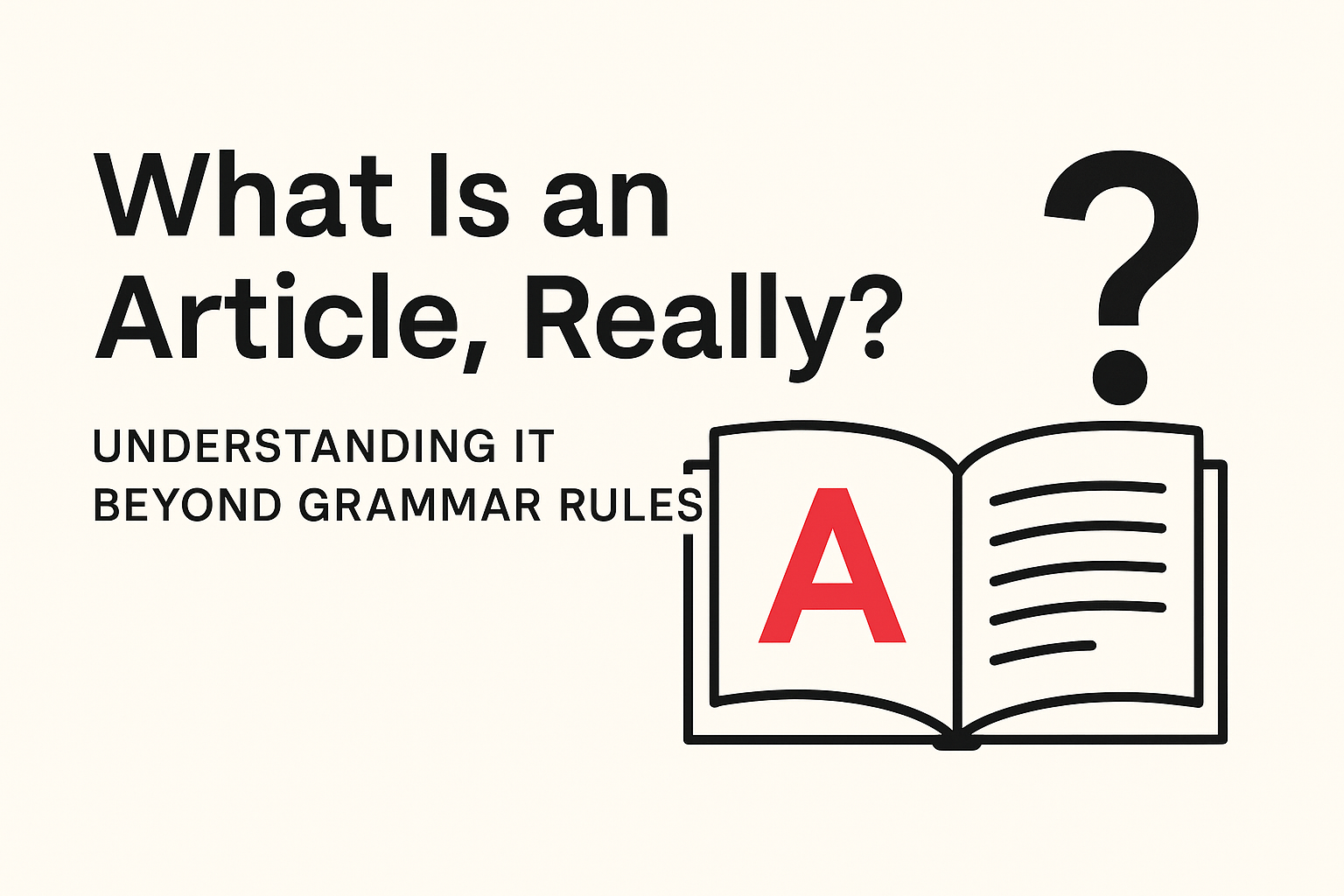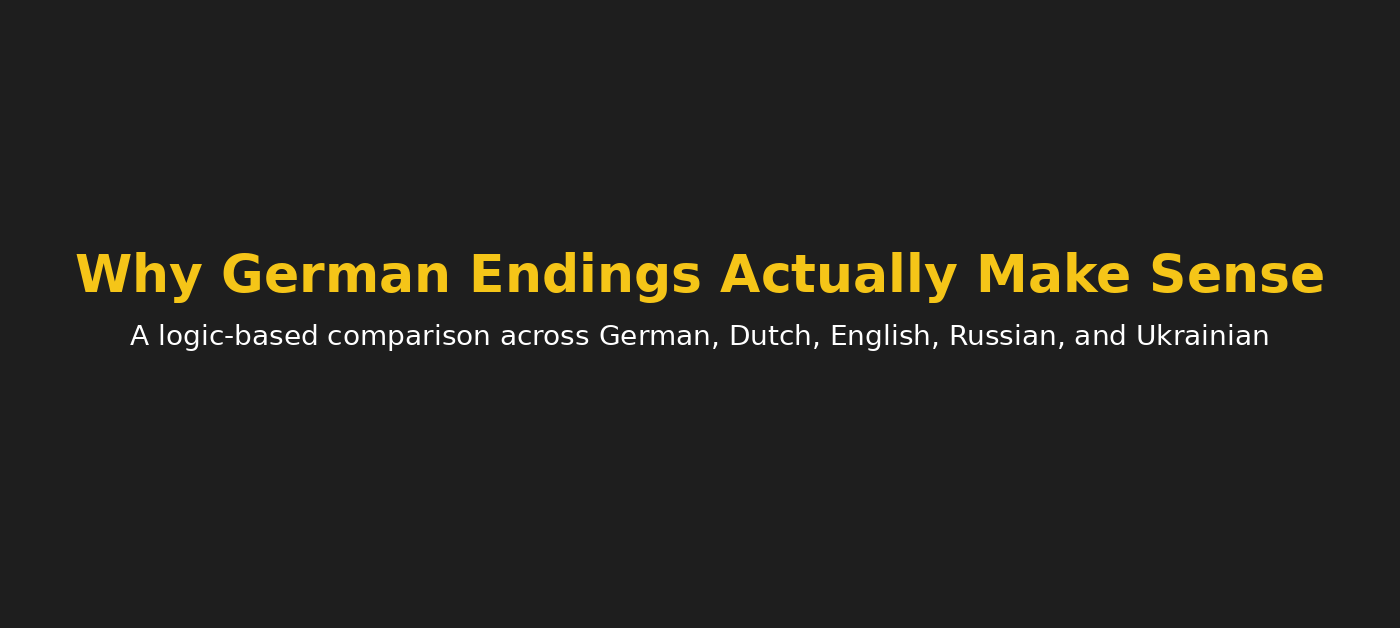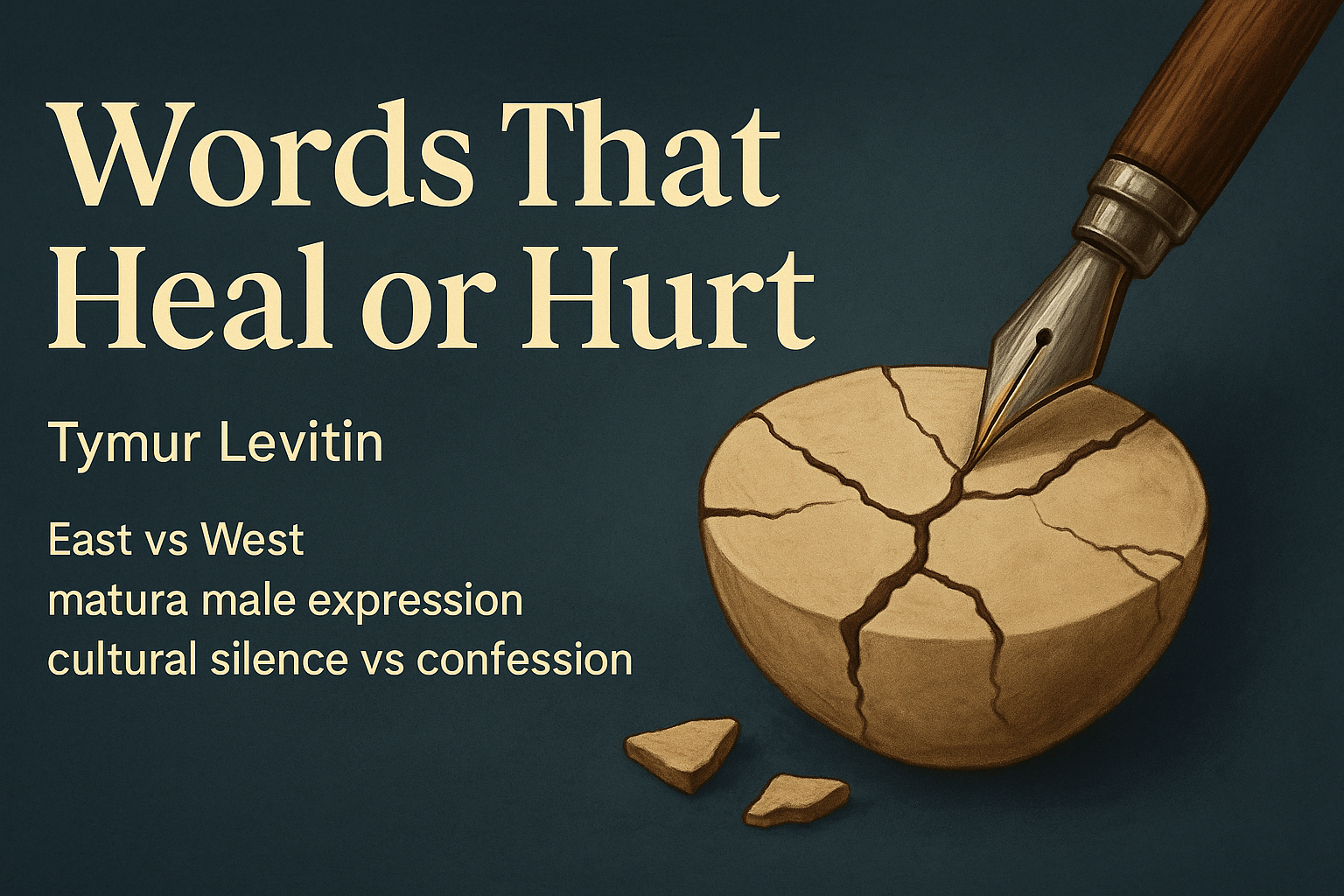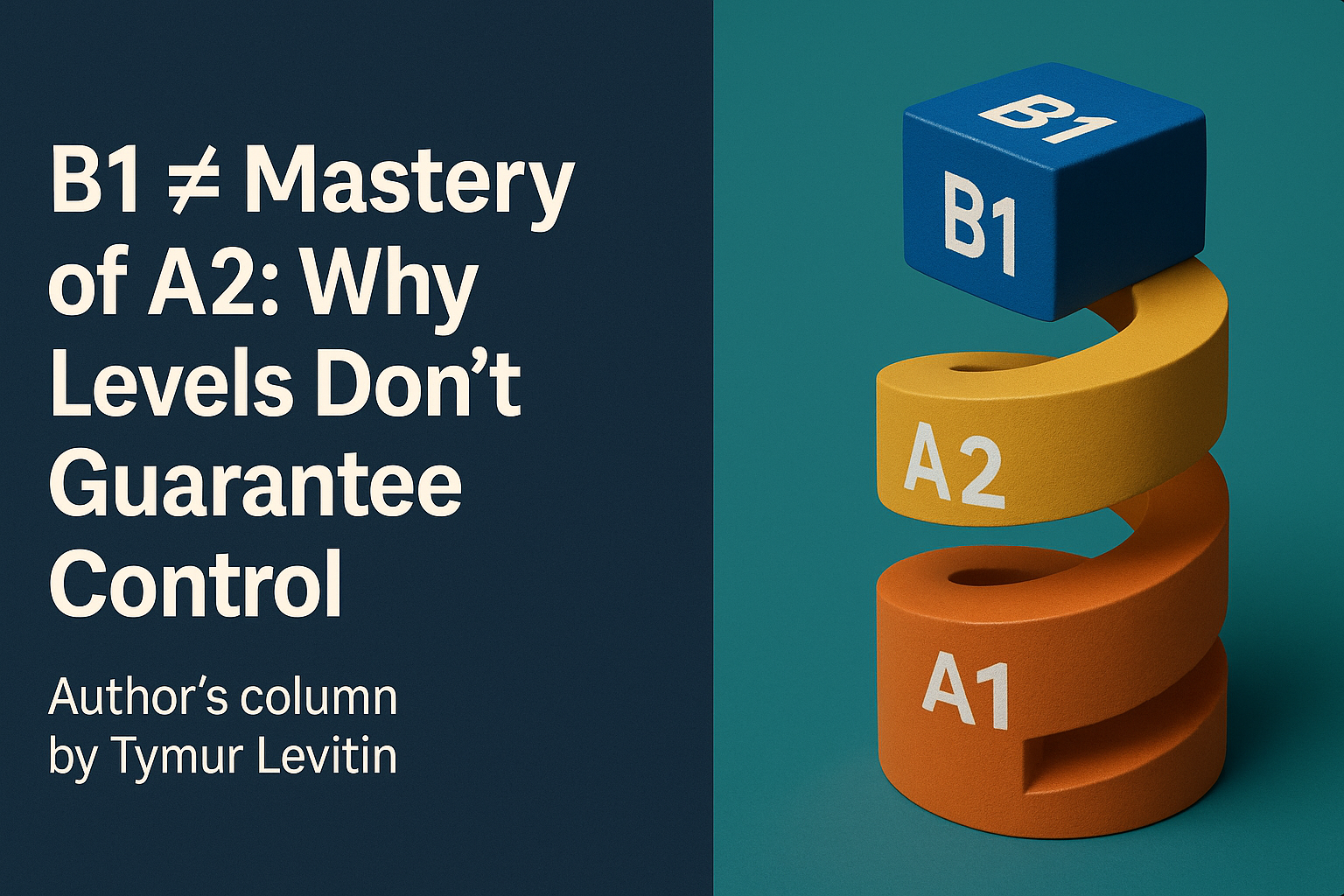Understanding It Beyond Grammar Rules
“An article is not a word. It’s a decision.”
— Tymur Levitin
Why Students Struggle with Articles
Many students say things like:
“I know it’s ‘a’ or ‘the’… but I don’t know why.”
That’s the point. Because an article isn’t just grammar. It’s how you identify an object in your mind.
It’s how you choose to define something. It’s not about rules — it’s about intention.
Articles Are Only One Type of Identifier
Articles are not the only way to identify a noun.
In fact, they’re only one of several:
| Identifier Type | Example | Function |
|---|---|---|
| Article | a, the | General or specific reference |
| Pronoun | my, your, this | Ownership or distance identification |
| Adjective | red, famous | Adds descriptive identity |
| Proper name | John, Ukraine | Unique identity — article not needed |
Key insight: You don’t need to use two identifiers at once.
We don’t say “the my dog” — because one is enough.
That’s why articles disappear with names or pronouns:
The John — ✘
A my car — ✘
So What Is an Article, Then?
An article is a signal. It tells your listener:
- Do I know which one you mean?
- Is this new or already known?
- Is it general or specific?
In other words:
“I’m going to mention something — let me show you how to understand it.”
| Article | Use case | Mental function |
|---|---|---|
| a / an | First mention, general | New, undefined information |
| the | Known or shared concept | Specific, familiar reference |
| (none) | Names or mass concepts | Already specific or abstract |
It’s About How You Frame Reality
An article is not a word — it’s a lens.
It shapes how you present a noun to the person you’re talking to.
That’s why the same noun changes meaning depending on the article:
| Example | Meaning |
|---|---|
| I saw a doctor. | Any doctor, doesn’t matter who |
| I saw the doctor. | A specific one we both know |
| I saw Doctor Smith. | Unique individual — no article needed |
Related posts from our blog
→ One Noun — One Identifier: Why You Don’t Need “The My Car”
→ Why ‘a apples’ Doesn’t Exist — When Grammar Is Just Logic
→ Why We Don’t Promise You’ll Learn English in 30 Days
→ Bariera językowa nie dotyczy języka
O autorze
Tymur Levitin — founder, director, and senior instructor at Levitin Language School / Start Language School by Tymur Levitin
🔗 Poznaj autora →
© Tymur Levitin. Wszelkie prawa zastrzeżone.

















